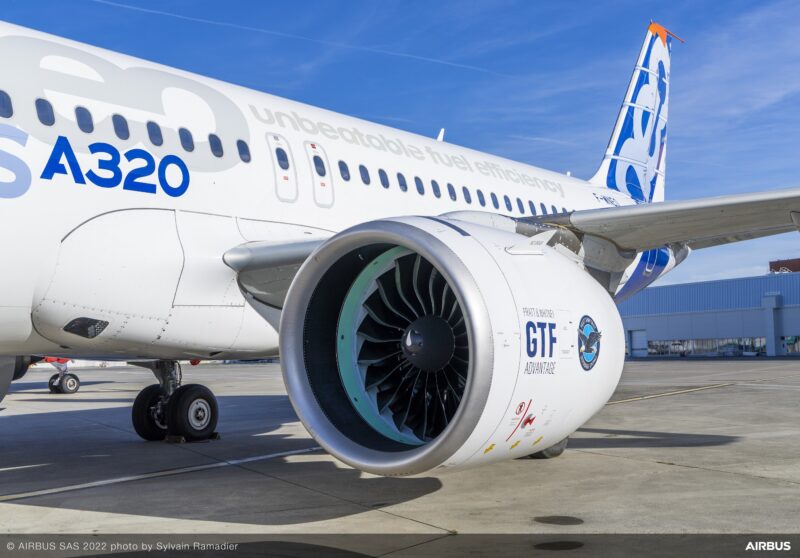How a Rare Engine Flaw Could Ground Hundreds of Airbus A320neo Jets

A rare manufacturing defect in some engines made by U.S. company RTX could affect hundreds of Airbus jets in the next few years, causing higher costs and lower capacity for airlines and suppliers around the world.
The defect, which was first disclosed in July, involves microscopic contaminants found in a powdered metal used to make high-pressure turbine discs in some Pratt & Whitney Geared Turbofan (GTF) engines. These contaminants could lead to cracks in the engine components, posing a safety risk.
RTX said on Monday Sep. 11 that it would have to inspect and replace about 600 to 700 of its GTF engines that power Airbus A320neo jets over the next three years. The company said that the inspections would take up to 300 days per engine, much longer than the initial estimate of 60 days.
The Pratt & Whitney GTF engine powers several models of the Airbus A320neo family, which is a series of narrow-body aircraft that are designed to offer lower fuel consumption, lower emissions, and lower noise than previous models. The A320neo family includes the A319neo, the A320neo, and the A321neo.
The announcement sent shockwaves across the global aerospace industry, which has been struggling with staff shortages and supply chain disruptions amid the recovery of travel demand from the pandemic.
Airlines that operate the affected Airbus jets, such as Lufthansa, Air New Zealand, Wizz Air, and JetBlue Airways, warned of potential capacity cuts and schedule adjustments due to the engine issue. Some airlines said they would seek compensation from RTX for the disruption.
Aerospace suppliers that produce parts or services for the GTF engines, such as Melrose Industries, IHI, Kawasaki Heavy Industries, and MTU Aero Engines, said they expected an earnings hit from the lengthy inspections. Some suppliers said they would also seek compensation from RTX for the impact.
RTX’s shares fell to a more than two-year low on Tuesday, as analysts and investors questioned the company’s handling of the problem and its financial implications. RTX said it would incur about $500 million in costs related to the engine issue this year, and did not provide guidance for future years.
Airbus said it did not expect an effect on its 2023 deliveries, but expressed its support for RTX’s decision to inspect and replace the faulty engines. Airbus CEO Guillaume Faury said at an event in Washington D.C. that the repairs were necessary to ensure safety. He said, “We don’t like the situation, but we think that was the right thing to do.”
The GTF engine is one of two options for the popular narrowbody Airbus A320neo, which competes with Boeing’s 737 MAX. The other option is the LEAP engine made by CFM International, a joint venture between GE and Safran.
The GTF engine is designed to offer lower fuel consumption, lower emissions, and lower noise than conventional engines. However, it has also faced several technical issues since its introduction in 2016, such as oil leaks, software glitches, and fan blade failures.
The latest engine flaw is another setback for RTX, which was formed from the merger of Raytheon and United Technologies in 2020. The company has been hit hard by the pandemic, which reduced demand for its products and services in aerospace and defense.
The engine issue also highlights the challenges and risks involved in manufacturing complex and critical components using advanced materials and techniques. The powdered metal used in the GTF engine discs is produced by a process called powder metallurgy, which involves compressing metal powders into solid shapes under high temperature and pressure.
Powder metallurgy can offer advantages such as higher strength, lighter weight, and lower cost than conventional metal forming methods. However, it can also introduce defects such as porosity, cracks, or impurities if not controlled properly.
RTX said it was working with its suppliers and customers to resolve the engine issue as quickly and safely as possible. The company said it was confident in the long-term performance and reliability of its GTF engines.
Sources: AirGuide Business airguide.info, msn.com, Reuters.com, CNBC.com, RTX.com, Airbus.com
